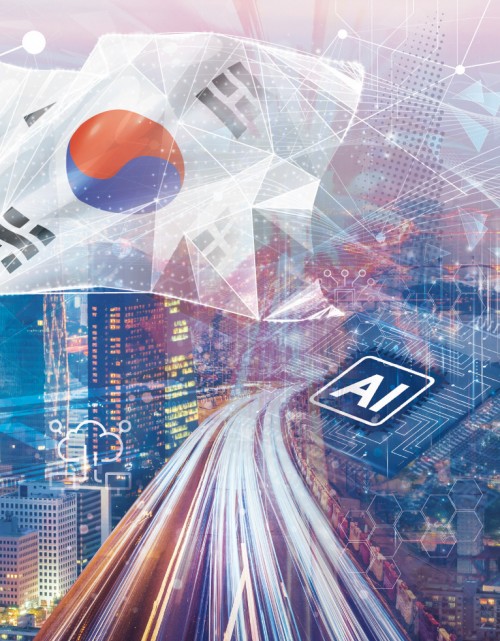 |
Artificial intelligence (AI) has emerged as the defining force of national competitiveness, igniting an all-out global race for technological supremacy. From Silicon Valley to Beijing, governments and companies are engaged in a high-stakes contest over who will lead the “intelligence age.”
The United States spearheaded the AI boom with OpenAI’s ChatGPT powered by advanced GPU chips, while China quickly responded with DeepSeek, signaling that this rivalry extends far beyond the tech sector. The AI revolution is now reshaping politics, society, and culture on a global scale.
The reach of AI already extends to battlefields and laboratories alike — from guiding missile targeting systems in the Russia–Ukraine war to tracing COVID-19 infection routes in public health. Google DeepMind’s AlphaProteo has advanced from protein structure prediction, which earned AlphaFold a Nobel Prize in Chemistry, to full-scale protein design. Meanwhile, generative AI tools have become deeply embedded in daily life, powering devices and services from home assistants to in-car systems. On-device AI and autonomous “AI agents” now blur the boundaries of traditional technology categories. AI has become both the alpha and omega of the Fourth Industrial Revolution.
The AI supremacy race is now a full-scale confrontation where survival depends on innovation. The question of “who can build the smarter system” no longer belongs to a handful of big tech companies — it has become a contest involving entire national ecosystems. The new hierarchy of the AI age transcends corporate boundaries, evolving into a struggle for national sovereignty. Countries that merely follow the lead of advanced economies, or remain passive observers, risk being swept away by the wave of AI transformation and losing control of their digital destiny.
Sam Altman, CEO of OpenAI, captured this moment by declaring last September, “Just as technology carried us from the Stone Age to the Industrial Age, human will is now opening the path to the Intelligence Age.” His prediction that human-level AI will soon become commonplace is no longer controversial among experts.
Korea’s AI challenge: survival through innovation
Against this backdrop, Korean industries are rushing to adapt, investing heavily in AI research and development as a matter of survival. Yet many experts warn that the government and political establishment are lagging behind, preoccupied with short-term issues while failing to lower regulatory barriers or deliver timely policy and legislative support.
Analysts argue that for Korea — a latecomer in the global AI race — to compete on equal footing, it must pursue a comprehensive national strategy: sustained investment, talent cultivation, ecosystem expansion, and policy designs that bridge manufacturing with AI startups.
As Asia Today marks its 20th anniversary, it explores how this global AI power struggle is unfolding — and how deeply AI is transforming everyday life, from the factory floor to the courtroom, from cultural production to national security.
Most Read
-
1
-
2
-
3
-
4
-
5
-
6
-
7





















